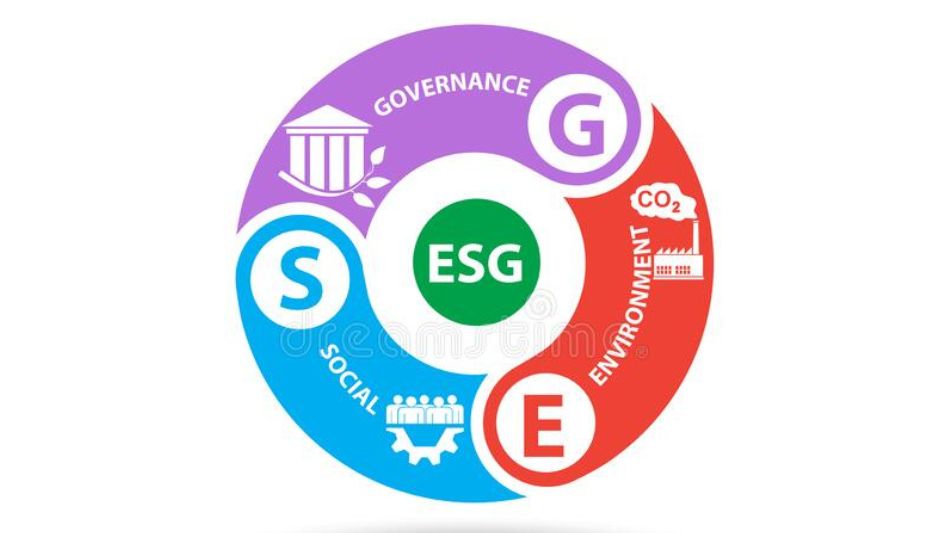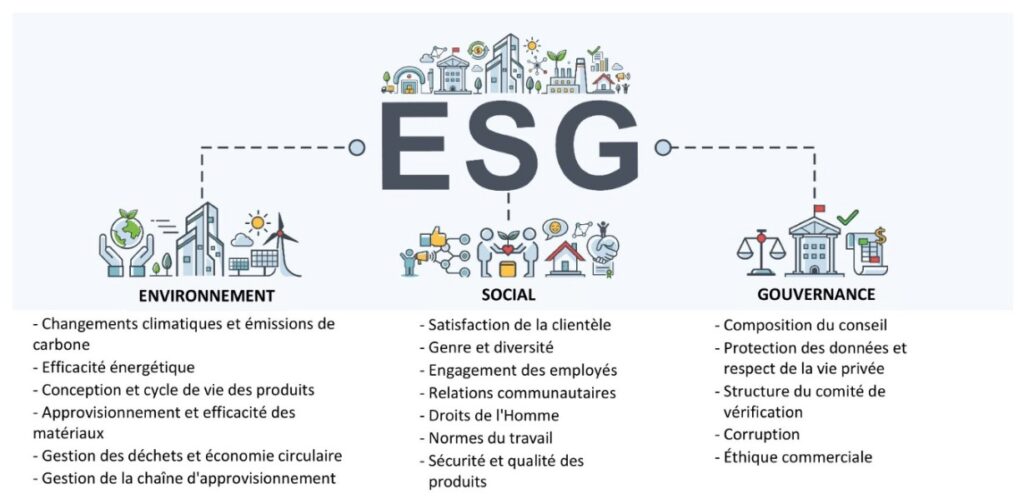In response to contemporary challenges, companies are adopting a more holistic approach to their activities through Environmental, Social, and Governance (ESG) criteria. These criteria go beyond traditional economic considerations by focusing on the social and environmental impact of businesses. A true tool for extra-financial analysis, ESG helps evaluate corporate social responsibility (CSR) and guides strategic decisions for investors. This modern concept redefines how an organization’s performance is measured, highlighting essential values such as waste management, social diversity, and risk prevention. Moreover, the introduction of the CAC 40 ESG illustrates the growing importance of these criteria, where analysis extends well beyond mere economic profit.
The Environmental, Social, and Governance (ESG) criteria are a set of factors used to assess corporate performance beyond traditional financial criteria. These criteria are essential for understanding how a company manages its interactions with society and the environment while maintaining rigorous governance.
Environmental Criteria: These criteria concern how a company impacts and manages the environment. They include aspects such as waste management, reducing greenhouse gas emissions, preventing environmental risks, and using natural resources. A sustainable company is distinguished by its ability to minimize its ecological footprint and adopt environmentally friendly practices.
Social Criteria: These criteria assess how a company interacts with its employees, customers, the community, and society at large. They take into account elements such as working conditions, diversity and inclusion, respect for human rights, and community relations. A company that excels in the social domain is aware of its human and societal impact and promotes an ethical and fair workplace.
Governance Criteria: Governance concerns how a company is directed and controlled. These criteria cover aspects such as transparency of management practices, independence of the board of directors, executive compensation structure, and anti-corruption measures. Good governance ensures that the company is managed in a transparent, responsible, and ethical manner, with a board that looks after the interests of stakeholders.
The ESG criteria have become essential for investors seeking to integrate a sustainable approach into their strategy. They allow for an extra-financial analysis of companies, thus guiding investment decisions toward businesses engaged in sustainable development. By evaluating how a company meets ESG criteria, investors can identify potential risks and opportunities related to the environment, society, and governance.
In France, the stock index CAC 40 ESG brings together 40 companies selected based on these criteria. This index illustrates how listed entities strive to align their economic performance with their ESG responsibilities.
Companies, aware of ESG issues, seek to align their strategy with these criteria to enhance their image, strengthen stakeholder satisfaction, and thus attract more investors. Consequently, ESG criteria have become a strategic lever for evaluating and improving Corporate Social Responsibility (CSR).

Table des matières
ToggleFAQ: Everything you need to know about the ESG definition and its criteria
Q: What does ESG mean?
A: ESG stands for Environmental, Social, and Governance. These criteria are used to assess a company’s practices beyond its simple economic performance.
Q: What are ESG criteria used for?
A: ESG criteria are used to evaluate an organization on environmental, social, and governance aspects. This allows for analyzing corporate social responsibility and guiding investors in their decisions.
Q: What are the environmental criteria?
A: Environmental criteria include waste management, reducing greenhouse gas emissions, and preventing ecological risks.
Q: What do the social criteria encompass?
A: Social criteria include relationships with employees, fair labor practices, diversity and inclusion, and community engagement.
Q: What does governance cover in ESG criteria?
A: Governance refers to the management structure, transparency, business ethics, and shareholder rights within a company.
Q: How do ESG criteria influence companies?
A: ESG criteria influence companies by encouraging the integration of sustainable and ethical practices, which can enhance their image, attract investors, and reduce long-term financial risks.
Q: What is the CAC 40 ESG index?
A: The CAC 40 ESG index is a stock index that groups together 40 companies selected based on their performance according to ESG criteria, in addition to traditional economic criteria.
Q: Is it mandatory for a company to comply with ESG criteria?
A: Although not mandatory, adherence to ESG criteria is becoming increasingly common and favored by investors seeking to support sustainable and responsible practices.





